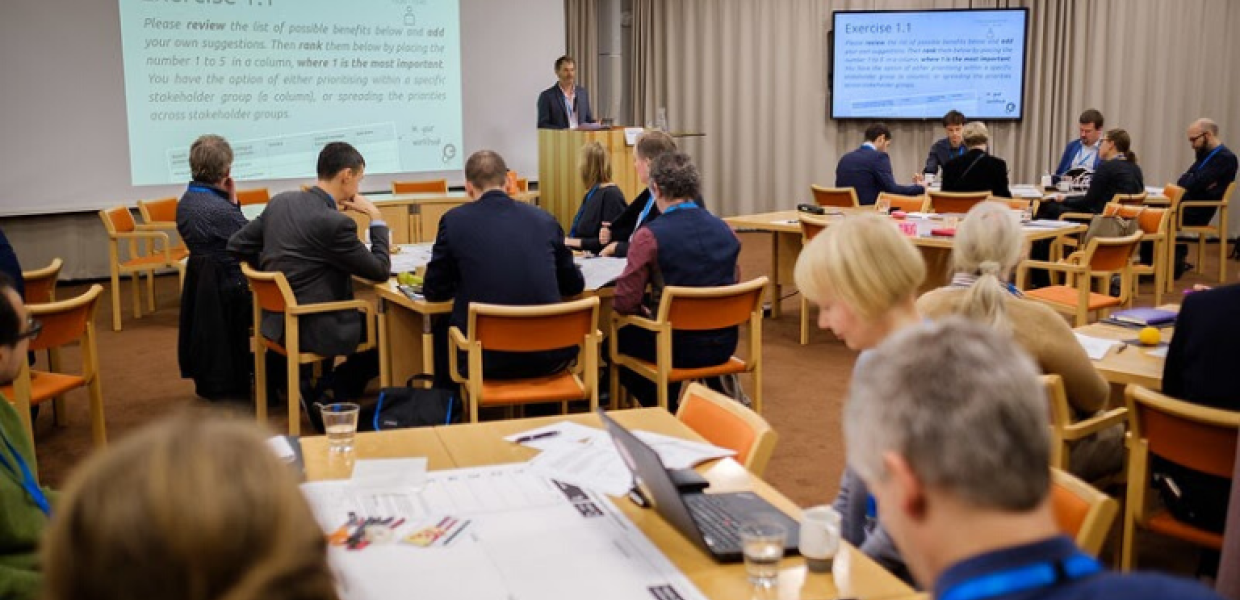During the Finnish Presidency of the Council of the European Union, Europeana and the Finnish Ministry of Education and Culture jointly held a meeting with high-level policymakers and experts in multilingualism to discuss the challenges and opportunities of multilingualism in digital cultural heritage. The event titled ‘Multilingualism in Digital Cultural Heritage - needs, expectations and ways forward’ was held on 24-25 October 2019 at the Hanaholmen Culture Centre, Espoo, Finland.
At the meeting, delegates from the DCHE Expert Group, Ministries of Culture across Europe, and multilingualism experts were invited to share their perspectives and experiences with each other through a series of speeches, presentations, case studies, panel discussions and workshops. Their aims were to:
- Stimulate reflection on multilingualism in digital cultural heritage at large using Europeana as a case study
- Develop a deeper understanding of the multilingualism problem/opportunity space for digital cultural heritage
- Consider what options can be pursued to provoke action at the local level, furthering the multilingual capabilities
- Provide input and feedback for the Europeana multilingual strategy.
Finland’s Ministry of Culture and Education State Secretary Tuomo Puumala emphasised the role of culture and heritage in creating a democratic and inclusive Europe.
The meeting focussed on multilingual metadata, content translation and user interactions. Some of the presentations and speeches included:
- Juliane Stiller - The status quo, the problem space, and historical information on multilingual development
- Rickard Domeij - Multilingualism, technology and policy
- Andrejs Vasiljevs and Jānis Ziediņš - Learnings from the automatic translation projects and how to apply them for the culture and heritage sector
- Heli Kautonen - UX design
- Dasha Moskalenko - UX design and user testing
- Matias Frosterus - Multilingual linked vocabularies and automatic subject indexing services
- Hugo Manguinhas - Europeana case study
- Anne Bajart - Multilingualism in Digital Cultural Heritage
- Tom Vanallemeersch - eTranslation
Dasha Moskalenko, Hugo Manguinhas and Antoine Isaac presented Europeana case studies on UX design, multilingual knowledge graphs and automatic translation.
Finally, a panel led by Andy Neale discussed conclusions and steps for progress.
The principal opportunities and challenges for various players were identified. Benefits of multilingualism were discussed. And together, delegates developed a broad set of solutions and changes needed to address the identified challenges and advance multilingualism.
This report summarises the key outcomes of the meeting including the benefits, challenges and solutions identified in relation to multilingualism in digital cultural heritage. Europeana is developing a recommended multilingual strategy and roadmap paper that builds on the output from the meeting in Finland. The Europeana multilingual strategy is scheduled for publication in spring 2020.


